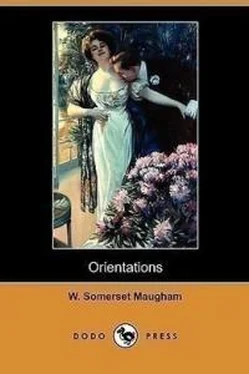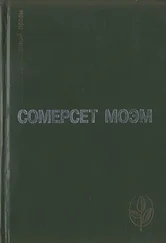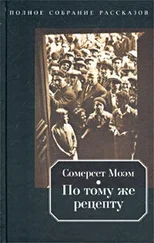Уильям Моэм - Orientations
Здесь есть возможность читать онлайн «Уильям Моэм - Orientations» весь текст электронной книги совершенно бесплатно (целиком полную версию без сокращений). В некоторых случаях можно слушать аудио, скачать через торрент в формате fb2 и присутствует краткое содержание. Год выпуска: 2014, Издательство: epubBooks Classics, Жанр: Классическая проза, на английском языке. Описание произведения, (предисловие) а так же отзывы посетителей доступны на портале библиотеки ЛибКат.
- Название:Orientations
- Автор:
- Издательство:epubBooks Classics
- Жанр:
- Год:2014
- ISBN:нет данных
- Рейтинг книги:5 / 5. Голосов: 1
-
Избранное:Добавить в избранное
- Отзывы:
-
Ваша оценка:
- 100
- 1
- 2
- 3
- 4
- 5
Orientations: краткое содержание, описание и аннотация
Предлагаем к чтению аннотацию, описание, краткое содержание или предисловие (зависит от того, что написал сам автор книги «Orientations»). Если вы не нашли необходимую информацию о книге — напишите в комментариях, мы постараемся отыскать её.
Orientations — читать онлайн бесплатно полную книгу (весь текст) целиком
Ниже представлен текст книги, разбитый по страницам. Система сохранения места последней прочитанной страницы, позволяет с удобством читать онлайн бесплатно книгу «Orientations», без необходимости каждый раз заново искать на чём Вы остановились. Поставьте закладку, и сможете в любой момент перейти на страницу, на которой закончили чтение.
Интервал:
Закладка:
It was in the carpenter's shop; the business had dwindled till Griffith only kept one man and a boy; he put aside the saw he was using.
'What I've done to my daughter, I'm willing to take the responsibility for; I ask no one's advice and I want no one's opinion; and if you think I'm not fit to be churchwarden you can find someone else better.'
'Why don't you make it up with your daughter, Griffith?'
'Mind your own business!'
The carpenter had brooded and brooded over his sorrow till now his daughter's name roused him to fury. He had even asserted a little authority over his wife, and she dared not mention her daughter before him. Daisy's marriage had seemed like the consummation of her shame; it was vice riding triumphant in a golden chariot….
But the name of Lady Ously–Farrowham was hardly ever out of her mother's lips; and she spent a good deal more money in her dress to keep up her dignity.
'Why, that's another new dress you've got on!' said a neighbour.
'Yes,' said Mrs Griffith, complacently, 'you see we're in quite a different position now. I have to think of my daughter, Lady Ously–Farrowham. I don't want her to be ashamed of her mother. I had such a nice long letter from her the other day. She's so happy with Sir Herbert. And Sir Herbert's so good to her.' …
'Oh, I didn't know you were.' …
'Oh, yes! Of course she was a little—well, a little wild when she was a girl, but I've forgiven that. It's her father won't forgive her. He always was a hard man, and he never loved her as I did. She wants to come and stay with me, but he won't let her. Isn't it cruel of him? I should so like to have Lady Ously–Farrowham down here.' …
XIII
But at last the crash came. To pay for the new things which Mrs Griffith felt needful to preserve her dignity, she had drawn on her husband's savings in the bank; and he had been drawing on them himself for the last four years without his wife's knowledge. For, as his business declined, he had been afraid to give her less money than usual, and every week had made up the sum by taking something out of the bank. George only earned a pound a week—he had been made clerk to a coal merchant by his mother, who thought that more genteel than carpentering—and after his marriage he had constantly borrowed from his parents. At last Mrs Griffith learnt to her dismay that their savings had come to an end completely. She had a talk with her husband, and found out that he was earning almost nothing. He talked of sending his only remaining workman away and moving into a smaller place. If he kept his one or two old customers, they might just manage to make both ends meet.
Mrs Griffith was burning with anger. She looked at her husband, sitting in front of her with his helpless look.
'You fool!' she said.
She thought of herself coming down in the world, living in a pokey little house away from the High Street, unable to buy new dresses, unnoticed by the chief people of Blackstable—she who had always held up her head with the best of them!
George and Edith came in, and she told them, hurling contemptuous sarcasms at her husband. He sat looking at them with his pained, unhappy eyes, while they stared back at him as if he were some despicable, noxious beast.
'But why didn't you say how things were going before, father?' George asked him.
He shrugged his shoulders.
'I didn't like to,' he said hoarsely; those cold, angry eyes crushed him; he felt the stupid, useless fool he saw they thought him.
'I don't know what's to be done,' said George.
His wife looked at old Griffith with her hard, grey eyes; the sharpness of her features, the firm, clear complexion, with all softness blown out of it by the east winds, expressed the coldest resolution.
'Father must get Daisy to help; she's got lots of money. She may do it for him.'
Old Griffith broke suddenly out of his apathy.
'I'd sooner go to the workhouse; I'll never touch a penny of hers!'
'Now then, father,' said Mrs Griffith, quickly understanding, 'you drop that, you'll have to.'
George at the same time got pen and paper and put them before the old man. They stood round him angrily. He stared at the paper; a look of horror came over his face.
'Go on! don't be a fool!' said his wife. She dipped the pen in the ink and handed it to him.
Edith's steel–grey eyes were fixed on him, coldly compelling.
'Dear Daisy,' she began.
'Father always used to call her Daisy darling,' said George; 'he'd better put that so as to bring back old times.'
They talked of him strangely, as if he were absent or had not ears to hear.
'Very well,' replied Edith, and she began again; the old man wrote bewilderedly, as if he were asleep. 'DAISY DARLING,— … Forgive me!… I have been hard and cruel towards you…. On my knees I beg your forgiveness…. The business has gone wrong … and I am ruined…. If you don't help me … we shall have the brokers in … and have to go to the workhouse…. For God's sake … have mercy on me! You can't let me starve…. I know I have sinned towards you.—Your broken–hearted … FATHER.'
She read through the letter. 'I think that'll do; now the envelope,' and she dictated the address.
When it was finished, Griffith looked at them with loathing, absolute loathing—but they paid no more attention to him. They arranged to send a telegram first, in case she should not open the letter,—
' Letter coming; for God's sake open! In great distress. —FATHER.'
George went out immediately to send the wire and post the letter.
XIV
The letter was sent on a Tuesday, and on Thursday morning a telegram came from Daisy to say she was coming down. Mrs Griffith was highly agitated.
'I'll go and put on my silk dress,' she said.
'No, mother, that is a silly thing; be as shabby as you can.'
'How'll father be?' asked George. 'You'd better speak to him, Edith.'
He was called, the stranger in his own house.
'Look here, father, Daisy's coming this morning. Now, you'll be civil, won't you?'
'I'm afraid he'll go and spoil everything,' said Mrs Griffith, anxiously.
At that moment there was a knock at the door. 'It's her!'
Griffith was pushed into the back room; Mrs Griffith hurriedly put on a ragged apron and went to the door.
'Daisy!' she cried, opening her arms. She embraced her daughter and pressed her to her voluminous bosom. 'Oh, Daisy!'
Daisy accepted passively the tokens of affection, with a little sad smile. She tried not to be unsympathetic. Mrs Griffith led her daughter into the sitting–room where George and Edith were sitting. George was very white.
'You don't mean to say you walked here!' said Mrs Griffith, as she shut the front door. 'Fancy that, when you could have all the carriages in Blackstable to drive you about!'
'Welcome to your home again,' said George, with somewhat the air of a dissenting minister.
'Oh, George!' she said, with the same sad, half–ironical smile, allowing herself to be kissed.
'Don't you remember me?' said Edith, coming forward. 'I'm George's wife; I used to be Edith Pollett.'
'Oh, yes!' Daisy put out her hand.
They all three looked at her, and the women noticed the elegance of her simple dress. She was no longer the merry girl they had known, but a tall, dignified woman, and her great blue eyes were very grave. They were rather afraid of her; but Mrs Griffith made an effort to be cordial and at the same time familiar.
'Fancy you being a real lady!' she said.
Daisy smiled again.
'Where's father?' she asked.
'In the next room.' They moved towards the door and entered. Old Griffith rose as he saw his daughter, but he did not come towards her. She looked at him a moment, then turned to the others.
Читать дальшеИнтервал:
Закладка:
Похожие книги на «Orientations»
Представляем Вашему вниманию похожие книги на «Orientations» списком для выбора. Мы отобрали схожую по названию и смыслу литературу в надежде предоставить читателям больше вариантов отыскать новые, интересные, ещё непрочитанные произведения.
Обсуждение, отзывы о книге «Orientations» и просто собственные мнения читателей. Оставьте ваши комментарии, напишите, что Вы думаете о произведении, его смысле или главных героях. Укажите что конкретно понравилось, а что нет, и почему Вы так считаете.










